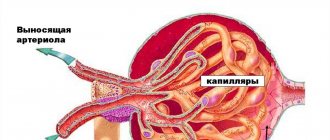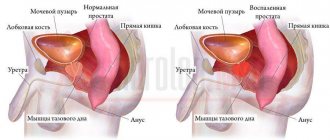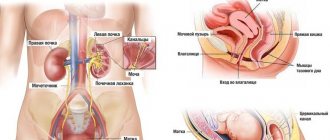Sexual intercourse for partners is the satisfaction of a natural desire for intimacy. However, in some cases, it not only does not bring positive emotions, but causes unpleasant sensations associated with a burning sensation in the genitals after sex. There can be many reasons for this, so to diagnose these symptoms, you should immediately visit a gynecologist.
The manifestation of a burning sensation in the urethra after sex can be either pathological or non-pathological. It is worth examining each factor separately.
Non-pathological processes include individual intolerance to contraceptives, as well as the use of condoms, that is, the material from which they are made. The pathological factor is the penetration of pathogenic microorganisms into the body from the external environment and their development in the genitals.
Among the most common causes is thrush, of fungal origin. It can occur in any representative of the fair sex during childbearing age. Almost always, infection occurs from a partner during intimacy. But it can be transmitted through sharing personal hygiene products. People with weakened immune systems are susceptible to this disease, which can be accompanied by hypothermia, prolonged stress, as well as various infections.
Trichomoniasis is also transmitted sexually, and most often the carriers of this disease are representatives of the stronger sex. This disease can remain dormant until a favorable environment for its development arises, which is accompanied by burning and pain in the genitals, especially noticeable after sexual intercourse.
Disturbance of the normal microflora of the vagina is called bacterial vaginosis. The reasons may be frequent changes of partners, decreased immunity, and be accompanied by discharge with an unpleasant odor.
The cause of burning and pain after sexual intercourse can be inflammation of the vaginal mucosa due to various infections of the genitourinary organs. There are other reasons that also influence unpleasant factors, these are vaginal dryness syndrome and the psycho-emotional factor.
Non-infectious pathologies
With the development of what diseases do men worry about burning after sexual intercourse?
Candidiasis. The most common disease that causes discomfort in the genital area is thrush. Both women and men can become infected with candidiasis. Moreover, in the latter, the pathology occurs with the same severe symptoms. Representatives of the stronger sex with thrush experience itching and burning after sexual intercourse.
https://www.youtube.com/watch?v=VVvZMXFA_P8
In addition, signs of candidiasis infection include hyperemia (redness of the skin) of the head and foreskin, the formation of a white film (plaque), and the appearance of pathological discharge that has an unpleasant odor. It is important to visit a doctor when symptoms of thrush appear and begin treatment. Otherwise, the fungal infection will spread throughout the body and provoke an inflammatory process in the genitourinary organs.
Trichomoniasis. Another disease that is often diagnosed in men who complain of a burning sensation after sexual intercourse is trichomoniasis. Patients also experience swelling of the tissues of the foreskin, redness of the glans, and the release of pathological exudate. In the absence of timely treatment, wounds and ulcers appear on the skin of the external genitalia, and the condition worsens.
Gonorrhea. Burning after sexual intercourse, itching and soreness in the area of the head of the penis, scrotum and foreskin may indicate infection with gonorrhea, a dangerous sexually transmitted disease. This pathology is characterized by periods of remission and exacerbation, when the symptoms either disappear or become quite pronounced.
Balanoposthitis. Inflammation of the head and tissues of the foreskin in representatives of the stronger sex also provokes the appearance of itching, burning and pain. It is not difficult to suspect the presence of such a pathology. The affected area turns red, swells, and itches. Men suffer from constant pain. If balanoposthitis is not treated, the inflamed tissue will begin to scar and this will lead to narrowing of the foreskin, poor opening of the head and other complications.
Inflammatory process in the genitourinary system. Burning after sexual intercourse may occur due to the development of inflammation in the prostate gland, bladder, testes or urethra. Neglected, previously uncured diseases - prostatitis, urethritis, cystitis, orchitis and others, when exacerbated, are accompanied by unpleasant painful sensations, itching and burning, localized in the groin area.
Allergy
A burning sensation in the area of the head of the penis can be triggered by an allergic reaction to a certain substance, object, food, etc. The irritant is usually:
- personal hygiene products (solid and liquid soap, shower gels, creams, lotions);
- topical medications (ointments, compresses, baths);
- underwear made from synthetic fabrics or too coarse material;
- latex condoms, products of a sexual nature (products to enhance potency, increase the duration of sexual intercourse, penis attachments, lubricants, etc.);
- rough blanket or bedding that quickly rubs the skin;
- insect bites (mosquitoes, wasps, midges, bedbugs, pubic lice).
To eliminate foci of inflammation, as well as itching and burning, you need to carefully analyze your living conditions, sanitary and hygienic regime, wardrobe and try to exclude possible “provocateurs” from everyday life. To quickly get rid of allergies and make you feel better, it is advisable not to cover the genital area with a blanket while sleeping, so that the irritated surface of the penis does not come into contact with anything. It is also good to apply cold compresses to the sore spot several times a day for 5-10 minutes.
Balanoposthitis
A disease in which inflammation of the head of the penis and foreskin occurs. It develops against the background of immunodeficiency conditions, as well as non-compliance with basic hygiene rules for the care of the genitals. One of the reasons for the appearance of balanoposthitis may be a violation of the microflora of the genitourinary system, causing a quantitative imbalance of opportunistic bacteria (streptococci, gonococci, staphylococci). Typically, symptoms look like this:
- weeping (maceration) of the skin of the penis, slight swelling;
- burning and itching in the area of the head of the penis;
- the appearance of rashes in the form of ulcers filled with white liquid inside;
- pain syndrome of varying intensity;
- swelling of the lymph nodes in the groin area;
- development of shallow erosions into necrotic ulcers (last stage).
Treatment: the treatment regimen is developed depending on the stage of the disease at which the patient consulted a doctor. In the absence of serious clinical manifestations, local drugs are prescribed (antiseptic rinses and baths with Chlorophyllipt, Miramistin, Furacilin), and in advanced situations, broad-spectrum antibiotics (fluoroquinolones, penicillins). For preventive purposes, immunostimulants are additionally taken.
Urethritis
A urological disease during which the urethra becomes inflamed. The development of urethritis can be the result of a reaction to various chemicals found in soaps and hygienic cosmetics, as well as contraceptives containing spermicide. The disease often manifests itself as a result of trauma to the genital organs, various mechanical irritations (bedding, underwear, masturbation), as well as as a result of congestion in the pelvic area. The main symptoms of urethritis are:
- a burning sensation, especially disturbing after urination;
- copious discharge from the urethra in the form of mucus of a greenish or gray-bluish color, accompanied by an unpleasant, pungent odor;
- redness of the opening of the urethra, swelling of the head;
- frequent urge to go to the toilet;
- bloody discharge in the urine;
- pain during sexual intercourse.
Treatment: the best effect is achieved with an integrated approach using antibiotics (Norfloxacin, Amoxiclav, Cipronol) and topical drugs (Miramistin, Protargol). At the same time, a multivitamin course is prescribed to increase the body's defenses and strengthen the immune system.
It occurs as a result of internal changes leading to the deposition of stones in various parts of the urinary system (ureter, kidneys, bladder). The clinical manifestations of the disease depend on which organ the problem is localized in, but the general symptoms are characterized by the following signs:
- burning and itching in the penis;
- pain and difficulty urinating;
- the presence of blood clots in the urine, as well as purulent discharge;
- stomach upsets;
- renal colic;
- frequent urge to go to the toilet.
Treatment: when small-diameter stones are diagnosed, conservative treatment is prescribed, based on following a strict diet and taking medications that help dissolve urate formations (Uralit U, Bemaren). The use of balneological procedures, herbal medicine, as well as special physical therapy shows itself well in practice. In cases where the above methods of getting rid of stones are not effective, surgical intervention (lithotripsy) is performed.
Prostatitis
Inflammation of the prostate gland is a fairly common occurrence in men over 40 years of age. The causes of the disease may be disturbances in the functioning of the gastrointestinal tract, the immune system, improper blood circulation, previous injuries to the pelvic organs, low physical activity and a passive lifestyle, hormonal disorders, and various chronic pathologies in the context of the genitourinary system. General symptoms during the development of prostatitis look like this:
- burning and itching in the head of the penis, as well as in the perineal area;
- pain during defecation;
- frequent urge to urinate, which does not provide relief and a feeling of complete emptying;
- periodic or constant purulent discharge from the urethra, especially during morning urination;
- the presence of whitish threads and flakes in the urine;
- accelerated ejaculation during sexual intercourse;
- erection problems;
- increase in body temperature.
Treatment: the nature of the treatment depends on the stage of the disease and is expressed in taking antibiotics (Ofloxacin, Levofloxacin), drugs that normalize blood composition and circulation (Detralex, Cavinton, Trental), as well as analgesics (Ketanov, Ibuprofen, Nise, Tempalgin), detoxification agents (Lactosol , Disol).
Candidiasis
A fungal disease resulting from an imbalance in the body's microflora. It is caused by fungi of the genus Candida and almost always worsens against the background of reduced immunity. In addition to the penis itself, thrush can also spread to the scrotum and perineum, causing an exacerbation of prostatitis or urethritis. The main symptoms look like this:
- itching and burning in the genital area, in particular the head and foreskin;
- slight swelling of the genitals;
- discharge in the form of cheesy clots of white and grayish color;
- the formation of whitish films, bubbles, reddish spots and erosions on the surface of the head;
- unpleasant odor from the genitals;
- pain when urinating.
Treatment: in the fight against candidiasis, local (Clotrimazole) and oral antimycotic drugs (Fluconazole, Flucostat, Natamycin), baths and lotions (potassium permanganate, Chlorhexidine), as well as various traditional medicines are used.
A burning sensation in the penis is quite often a consequence of insufficient hygiene of the intimate area. Smegma accumulates on the head of the reproductive organ, which needs to be cleaned. This does not require any special devices or tools. Ordinary running water and soap easily cope with the task.
Burning sensation when urinating after sex in men
Burning after sexual intercourse in men often occurs as a result of damage to the frenulum. Rupture or tearing of this fold of skin occurs during intense friction. This injury is accompanied by pain and burning, which become especially pronounced after sex.
Quite often, shower gel, soap or powder used for washing clothes irritate the sensitive skin of the genitals, resulting in extremely unpleasant sensations.
If you are concerned about burning after sexual intercourse, itching and other unpleasant symptoms, it is important to seek advice from a specialist and determine their cause. If necessary, the doctor will prescribe adequate treatment to eliminate the underlying disease.
A burning sensation in the urethra after urination in men signals the development of inflammation in the genitourinary system, most often in the bladder or urethra (cystitis and urethritis). Treatment of cystitis or urethritis involves taking antibiotics prescribed by a doctor based on examination and test results.
Inflammations can be caused by sexually transmitted infections; the inflammatory process can develop due to hypothermia, injury or failure to comply with intimate hygiene rules. Burning and pain in the urethra can go away on their own, but if the burning sensation in the urethra after urination in men does not go away for more than a day, you should consult a doctor.
There are many reasons why a burning sensation occurs in the urethra after urination. This symptom must be taken seriously. The most common cause is sexually transmitted diseases; a burning sensation occurs with prostatitis and urethritis. Irritation of the mucous membrane of the urethra is caused by the consumption of too hot, sour, salty and spicy foods, alcohol and carbonated drinks. The burning sensation can be caused by candida fungi, which are transmitted during sexual intercourse from a partner with thrush.
In order to determine the cause, you need to contact a venereologist or urologist. The doctor will prescribe a prostate examination to rule out or confirm prostatitis. If a burning sensation appears from time to time, a detailed examination of the genitourinary system will be required, including ultrasound of the kidneys and urethrocystoscopy.
Itching and burning after urination in men after sex is an unpleasant symptom that causes discomfort and is a serious reason to consult a doctor. There are many reasons why burning and pain occurs during urination after sex. Most often these are various infectious and inflammatory diseases of the genitourinary system that affect the urethra, bladder or prostate gland. It is very important to contact a urologist in time and not self-medicate.
Itching, burning and pain during urination, redness, discharge from the genital organs in men - the body’s reaction to mechanical damage or penetration of pathogenic microorganisms into the genitourinary system. You should not endure it and it is better to consult a doctor as soon as possible.
When diagnosing the disease, the location of the burning sensation, the actions after which it appears, as well as other symptoms that occur along with the burning sensation after sex are taken into account.
Men often suffer from various diseases of the genitourinary system. This can be an infectious pathology (urethritis, STDs, cystitis) and non-infectious (trauma, urolithiasis). Almost all of these diseases have symptoms such as pain, itching or burning in the penis during urination.
They need to be distinguished. A burning sensation in the penis is a common occurrence. When such signs appear, some men ignore what is happening, hoping that everything will go away. Others try to cure the burning sensation on their own with the help of various ointments and creams, which often only worsens the condition of the sick person.
It is important that if a burning sensation occurs, you need to wait a little. If it goes away on its own after some time, then it is not dangerous. If new symptoms appear (discharge, pain), then this is a reason to consult a doctor. An interesting fact is that, unlike women, men have a longer and thinner urethra, so it is difficult for infections to penetrate from the outside.
Another disease that causes a burning sensation in the penis is urolithiasis. This is a metabolic pathology in which a large amount of various salts are deposited in the urine: urates, oxalates, phosphates. Unpleasant sensations in the head of the genital organ in men are one of many symptoms.
It is important that external and internal factors play a large role in the development of urolithiasis. External factors include poor nutrition (consumption of large amounts of animal proteins or salt, foods containing a lot of oxalic acid, excess calorie intake), unfavorable environmental conditions, physical inactivity, and harmful production factors (increased physical activity).
Endogenous factors include hereditary predisposition, the presence of foci of chronic infection, gout, traumatic lesions, and diseases of the gastrointestinal tract. The main symptoms of the disease: pain (renal colic), impaired excretion of urine, the presence of blood or pus in it, dyspeptic disorders, pollakiuria, urge to urinate and burning.
A burning sensation, especially if it is more frequent, may indicate the development of a number of diseases.
Urethritis
Urethritis is a disease that occurs as a result of inflammation of the urethra.
There can be many causes of the disease - from unprotected sexual intercourse, when microorganisms get inside and develop, to stress, disrupted diet, inadequate sleep, when the immune system weakens and the body becomes more susceptible to external and even internal aggressive environments.
This is also inflammation, only it is localized in the prostate gland. Appears when the blood supply to the genital organs is disrupted. The burning sensation in this case is not as significant as with urethritis, but it is still there.
It can also be provoked by unprotected sexual intercourse, poor lifestyle, and concomitant diseases of the genitourinary system, but more often it occurs all together.
Urolithiasis disease
With urolithiasis, burning is a common symptom. Urine becomes saturated with toxic substances that irritate the canal through which it passes through the penis. This may cause a burning sensation.
Chlamydia
Chlamydia is an infectious disease that is transmitted through sexual contact and poor personal hygiene. Chlamydia is often asymptomatic, but a burning sensation is still present most often.
Gonorrhea
A sexually transmitted sexually transmitted disease. Usually characterized by burning and severe itching of the genitals. The disease affects the kidneys, intestines, eyes, liver, and the organs of the urinary system in general. Symptoms appear acutely and several at a time.
There are no immediate consequences of the burning sensation itself. This is only one of the symptoms of the disease. However, you need to pay attention to allergic reactions, which may result in a burning sensation. If there is one, it is better to soothe the skin with antiallergic agents and take antihistamines internally.
If we are talking about burning as a symptom of one of the diseases that were described above, then these diseases bear the consequences.
There are a number of drugs that effectively break down solid formations. If the stones are large or cannot be broken down, an operation is required, which involves lithotripsy - crushing.
Chlamydia and gonorrhea
Antibiotics are prescribed to treat this disease. General strengthening measures are also required, since chlamydia, like gonorrhea, impairs the functioning of the kidneys and genitourinary system.
Drugs
Against urethritis:
- Metronidazole;
- Miramistin;
- Ciprofloxacin and others.
Against urolithiasis:
- Progesterone content of the product;
- Amlodipine;
- Nifedipine;
- Anti-inflammatory drugs depending on the characteristics of the course;
- Alpha blockers.
Against chlamydia:
- Azithromycin;
- Josamycin;
- Fluoroquinolones and others.
Against gonorrhea:
- Ofloxacin;
- Ciprofloxacin;
- Cefixime and others.
It is not recommended to treat complex diseases with folk remedies - they can either aggravate the condition or prolong the time without recovery, which will affect the speed of subsequent treatment and consequences.
To relieve itching in diseases, you can use soothing lotions made with a decoction of chamomile and lemon balm. Such compresses are made using gauze. Their use must be agreed with your doctor.
In most cases, itching after anal sex can be caused by sexually related proctitis - gonococcal and chlamydial, in addition, accompanied by minor reddish or yellowish discharge.
If the itching after anal sex is localized above the anus, a painful urge to defecate and, in fact, the bowel movements themselves, as well as purulent discharge with inclusions of blood, secondary constipation, and a slight increase in temperature may be observed. Specialist consultation is required.
Most itching after oral sex is caused by herpes, one of the most common diseases transmitted through both vaginal and oral contact.
This circumstance is due to the fact that the herpes virus, which is well known to all of us from rashes on the lips (often called “colds”) and can affect the genitourinary organs of men and women, while in remission, is able to migrate from the genitals to the mouth and from the mouth to the genitals. In addition to itching, the disease may be accompanied by burning and pain.
Symptoms
Ordinary cystitis differs from postcoital cystitis, not only in pathogens, but also in manifestations and signs. Postcoital cystitis occurs a short time after sex, unpleasant sensations, discomfort, and pain when urinating begin.
- soreness, burning;
- general malaise;
- heat;
- aching pain in the lower abdomen.
In addition, women may spontaneously release a small amount of urine, and various impurities and color changes may also appear.
These manifestations require an immediate response from a specialist, so any unpleasant manifestations require competent correction from a specialist. Only with the help of a set of diagnostic procedures can pathogens be identified and an accurate diagnosis made.
Men can also have similar manifestations, but much less frequently than women. This disease depends on the structural features of the body, so it is practically reduced to zero in the stronger half. Cystitis in men has the same symptoms, but it manifests itself due to other reasons.
When frequent urination occurs after sex, in most cases the disease is accompanied by other manifestations.
Itching in the vagina
The burning sensation in the vagina that occurs in women after sex in most cases is caused by the following reasons:
- disturbances of the vaginal microflora, accompanied by insufficiency or absence of lactobacilli;
- inflammatory diseases of the vaginal mucosa - vaginitis, vulvitis, bartholinitis, cervical erosion, in which vaginal itching after sex is most common;
- sexually transmitted diseases caused by bacteria, fungi and viruses (chlamydia, mycoplasmosis, candidiasis, ureaplasmosis, genital herpes and trichomoniasis);
- hormonal imbalance (which can also cause burning in the vagina during sex);
- allergic reactions to condoms, lubricants and gels, contraceptives, hygiene products, sperm and partner lubricants (can also cause a burning sensation after sex in women);
- too rough sex.
Diagnostics
If the urethra hurts after sex, an examination is necessary. Women need to undergo an examination by a gynecologist, during which:
- A visual examination is carried out for the presence of inflammatory processes in the external and internal genital organs.
- A smear is taken to examine the microflora of the vagina and cervix.
- Other tests for the presence of pathogenic microorganisms may be prescribed.
For men, the following types of diagnostics are prescribed:
- Ultrasound of the pelvic organs and scrotum.
- Taking urine and blood tests.
- Prostate examination.
- Detection of sexually transmitted infections and antibiogram.
After identifying the causes, treatment is prescribed to both sexual partners; sex is not recommended at this time. And to prevent any disease of the genitourinary system, preventive measures should be taken: maintain personal hygiene, eat right, have a regular partner.
Burning sensation with urethritis
Urethritis (inflammation of the urethra) develops as a result of the entry and proliferation of microorganisms. It can be divided into specific and nonspecific. In the first case, the pathogens are microorganisms that are characteristic of the genitourinary system. These include chlamydia, trichomonas, gonococci.
Nonspecific pathogens are streptococci, staphylococci, E. coli, microscopic fungi, that is, opportunistic microflora. Urethritis can be non-infectious in nature (due to injuries, medical procedures). Predisposing factors for the development of pathogenic flora are the following: unprotected sexual intercourse, poor nutrition, stressful situations, irregular sex, changes in hormonal levels and others.
A characteristic symptom of urethritis is a burning sensation on the head of the penis. Instead of burning, there may be itching. A burning sensation is observed when urinating. Additional signs of urethritis are pain, discharge that is greenish or mixed with blood. The discharge often has an unpleasant odor and is observed in the morning.
When the symptom is not dangerous
Itching when urinating is not always caused by health problems. Sometimes the causes are not dangerous and, after eliminating the provoking factor, go away on their own.
Discomfort may occur as a result of the following actions:
- Due to insufficient water intake, the concentration of salts in the urine increases, which irritates the urethra.
- During labor or caesarean section, women have a catheter inserted into their ureter. This causes discomfort for the next two to three days.
- Consequences of drinking alcohol, coffee, spicy food, soda.
- Damage to the mucous membrane of the vagina, urethra, head of the penis during sex.
- Due to excessively frequent washing several times a day, a girl’s genital microflora may be disrupted. The result is dryness and irritation.
- Wearing a pad or tampon for a long time during menstruation. Hygiene products should be replaced every three to four hours.
- Hard toilet paper can injure the epithelium of the labia and urethra.
- Some medications, when excreted in the urine, can irritate the mucous membranes.
- Synthetic underwear and tight elastic bands put pressure on the genitals and disrupt blood circulation in the pelvis. This not only causes itching, but also encourages the active development of pathogenic microorganisms.
Similar article - Ointment for cauterizing papillomas
After a couple of days after identifying irritating factors and taking measures, the discomfort goes away on its own. If the burning sensation bothers you greatly, you can drink No-Shpu or Spasmonet.
Penile irritation
This is very often observed when using various cosmetics and care products. Some components of shampoos, creams, shower gels can cause a burning sensation in the head of the penis. This happens during hygiene procedures or immediately after them. With such a burning sensation in the head, you don’t need to see a doctor. It goes away within a few hours or the next day. Interestingly, even simple low-quality toilet paper can cause a burning sensation in the penis or perineum.
The result of this effect is irritation of the penile mucosa. In more rare cases, this phenomenon may result from the use of spermicides, as well as regular condoms. A burning sensation can be triggered by a salt bath. If the burning sensation in the genitals does not go away for a long time, then you should consult a doctor for advice. Irritation can be caused by dirty underwear if personal hygiene rules are not followed.
To ensure that burning and itching no longer bother a man, it is necessary to exclude the etiological factor. If the issue is not an infection, but a lack of personal hygiene or irritation, then it is necessary to replace personal hygiene products with others. As for diseases, etiological treatment is carried out first.
In most cases, it involves the use of antibiotics. If the patient suffers from urolithiasis, then surgical intervention is indicated. Compliance with diet, drinking regimen, increasing the level of physical activity, eliminating stress and alcohol intake is also important.
Thus, burning and itching in the head of the penis in men can be observed in a variety of diseases. Often the cause is irritation of the urethral mucosa of the penis. To recognize a particular disease, you need to know its main manifestations.
An important role is played by sexually transmitted diseases, which have social significance, since they can be transmitted sexually from a sick person to a healthy one. It is important to remember that there is no need to self-medicate, as this is fraught with complications and the disease becoming chronic. If a man experiences itching in the penis, he should consult a doctor.
Burning is an unpleasant symptom that can characterize a lot of different male diseases.
The most common cause is balanoposthitis, in which sperm accumulates under the foreskin, causing an inflammatory process.
A burning sensation sometimes appears against the background of allergic reactions, with insufficient hygiene, when a pathogenic environment develops on the surface of the penis.
This is not always dangerous, but can provoke the development of infection.
You also need to pay attention to what kind of underwear is used, or rather, the fabric. It should not be synthetic - the delicate skin of the genital organs often reacts allergically to synthetics.
Genital herpes
A viral disease characterized by the appearance on the genitals of rashes in the form of blisters filled with a clear liquid. About 60-70% of the male population of puberty age are carriers of the herpes virus. An exacerbation of infection usually occurs against the background of decreased immunity, as well as as a result of infection of one sexual partner by another through unprotected contact (vaginal, oral, anal). Symptoms indicating the presence of genital herpes:
- itching and burning sensation in the groin area;
- the presence of a small rash that turns into a solid crust after the blisters open;
- swelling of peripheral lymph nodes;
- body aches, muscle pain;
- general malaise, increased body temperature.
Treatment: consists of the use of antiviral drugs (Gerpevir, Acyclovir, Valtrex), as well as immunomodulatory agents from the interferon series. Cold compresses and baths of anti-inflammatory herbs (chamomile, calendula) can be used as local actions aimed at reducing itching.
Gonorrhea
The causative agent of this disease is gonococci, which, when they get on the mucous membranes of the genitals, penetrate into the organs of the genitourinary system and cause a number of complications: from prolonged inflammatory processes to a decrease in a man’s reproductive abilities and leading to infertility. Transmitted sexually. The incubation period averages 15 days from the moment of contact with a carrier of the infection. Main symptoms:
- itching and burning in the penis, intensifying during urination;
- purulent discharge when pressing on the head of the penis;
- frequent urge to go to the toilet, similar to manifestations of cystitis;
- pain in the anal area during defecation;
- swelling of the testicles and inguinal lymph nodes;
- painful sensations during sexual intercourse with possible bloody discharge from the penis;
- fever, increased body temperature, migraines.
Treatment: therapeutic methods of combating gonorrhea are based on taking tetracycline and penicillin antibiotics - separately or in a combination of antibacterial drugs from different groups. Additionally, vitamin and immunotherapy is carried out, and hepatoprotectors are prescribed to restore the functions of the liver and gastrointestinal tract.
Trichomoniasis
It is one of the sexually transmitted diseases. The difficulty of diagnosis lies in the fact that trichomoniasis in men at the initial stage is often asymptomatic, manifesting itself in the form of various complications. In the chronic course of the disease, almost all organs of the genitourinary system are affected, including the prostate gland. Signs of infection:
- pain and burning in the penis, which intensifies with urination;
- false urge to go to the toilet even with an empty bladder;
- nagging pain in the prostate area;
- mucous discharge from the urethra of varying intensity;
- renal colic;
- narrowing of the urinary canal.
Treatment: the main therapy is taking antibacterial drugs (Tinidazole, Ornidazole, Metronidazole), combined with creams and ointments containing nitroimidazole (Rozamet, Rozeks). If necessary, analgesics (Ketanov, Spazmolgin), immunomodulators (Kagocel), vitamin complexes, hepatoprotectors (Gepabene) are prescribed.
Chlamydia
A serious infectious disease caused by chlamydia - microorganisms localized inside cells and therefore difficult to diagnose. In almost half of men, chlamydia occurs in the absence of obvious symptoms or is present in the body in a latent form. Symptoms that indicate a possible problem:
- burning sensation in the penis, intensifying during urination;
- morning urine is cloudy in color;
- inflammation of the external opening of the urethra;
- discharge from the penis of a mucopurulent, glassy and watery nature;
- pain (short-term pain, contractions) in the groin or lower back.
Treatment: There is no uniform treatment regimen for chlamydia. Courses of antibiotics are selected individually, taking into account the intensity of the disease and the general health of the patient. As a rule, antibacterial drugs from the series of tetracyclines (Dorix, Solutab), macrolides (Josamycin, Azitroicin), and fluoroquinolones (Floxin, Levostar, Norfloxacin) are prescribed. Antifungal agents (Fluconazole, Pimafucin), topical creams and ointments are also used to relieve external inflammation and itching.
Coital cephalalgia
Coital cephalgia is the medical name for headaches during lovemaking. The intensity of pain in each individual case is different, as is its duration.
People who have the most active sex life suffer more often. Headaches during orgasm do not always occur. There are 3 types of cephalalgia during sex:
- pre-orgasmic;
- orgasmic;
- postural.
Orgasmic headache occurs in a man during ejaculation; as a rule, it is short, characterized by pulsation in the temporal part of the head. The reason is increased blood pressure.
Preorgasmic appears in the back of the head and on both sides of the head. Reasons: overstrain of the neck muscles, uncomfortable posture.
Postural cephalgia haunts people due to the fact that the cerebrospinal fluid pressure in the cranium has changed, this happens when having sex while standing.
Headache during sex mainly affects people who frequently change sexual partners. The pain itself varies.
Pain during sex can increase gradually or occur suddenly. The sensations can be aching, dull, or sharp and pulsating.
Coital cephalgia, in addition to pain, is accompanied by the following symptoms:
- vomit;
- nausea;
- dizziness;
- tinnitus;
- darkening of the eyes;
- loss of consciousness;
- dyspnea.
Burning sensation with prostatitis
A burning sensation in the penis is very often a symptom of prostatitis. Prostatitis is inflammation of the prostate gland. The main reason for its development is a violation of the blood flow entering this organ. This occurs with physical inactivity and excess body weight. Unprotected sexual intercourse is of great importance, during which various bacteria first enter the blood and then penetrate the prostate.
With prostatitis, a burning sensation is observed in the perineum and urethra. This feeling occurs because the gland is located next to the urethra, so symptoms include difficulty urinating. Currently, prostatitis is a very common pathology; it is detected in almost every tenth man. Burning pain most often accompanies the chronic course of the disease.
Treatment of dyspareunia in our medical center:
- Effective . The result is noticeable after the first procedure!
- Safe . Thanks to the use of the latest laser, the genitals are not injured, and there are no complications after the procedure.
- Painless . No discomfort during or after the procedure.
- Fast . Three procedures are often sufficient.
- Long term . The effect after the procedure, as a rule, lasts for life, with the exception of traumatic situations.
The procedure for laser treatment of pain during sexual intercourse is carried out only by qualified gynecologists who have the skills to use the Deka Mona Lisa Touch device.
Gonorrhea and trichomoniasis
A special group of diseases, which is characterized by the presence of burning or itching in the penis, are sexually transmitted diseases. It includes herpes infection, syphilis, gonorrhea, chlamydia, trichomoniasis and others. Chlamydia is a very common disease today.
Glassy discharge from the penis may be observed. In some cases, blood or pus is found in the urine. Burning and itching may be absent, like many other manifestations. Itching is a variable symptom. Chlamydia is often asymptomatic. When the first signs appear, you should contact a dermatovenerologist.
Itching of the glans penis is observed not only with chlamydia. Itching in the penis is a sign of gonorrhea. It occurs acutely or chronically. In the first case, the patient complains of itching or burning of the penis, the presence of mucus or purulent contents. In addition, there is stranguria (pain when passing urine) and frequent urge to go to the toilet.
A man becomes infected through sexual contact from a sick partner. Most often this happens in the absence of a condom. Almost half of patients do not experience any symptoms. It is important that gonococcus can infect the epididymis, causing epididymitis, as well as the kidneys and bladder. Treatment includes the use of antibacterial agents.
As for trichomoniasis, it is similar to the infections described above. The difference is that the symptoms are scant or may be completely absent. There is itching or burning in the head of the penis, difficulty in urinating, the urge to go to the toilet, and pain. White, foamy discharge often comes out of the penis, sometimes mixed with pus.
Prevention
To avoid painful urination after sex, you must follow certain rules. Both partners should adhere to such measures.
Such measures include:
- Hygienic shower;
- Contraception;
- Treatment of inflammatory diseases;
- Choose loose underwear made from natural material;
- Avoid obesity;
- Limit salted and smoked foods;
- General strengthening: hardening, exercise, vitamins.
It is worth remembering that painful urinary incontinence and difficulty urinating after sex is a dangerous symptom that requires diagnosis and treatment by an experienced specialist.
Doctors define burning after urination as dysuria. Often this is only the first symptom of the disease; as it develops, the clinical picture expands. May be accompanied by an increased urge to go to the toilet with a small amount of urine, and painful urination.











